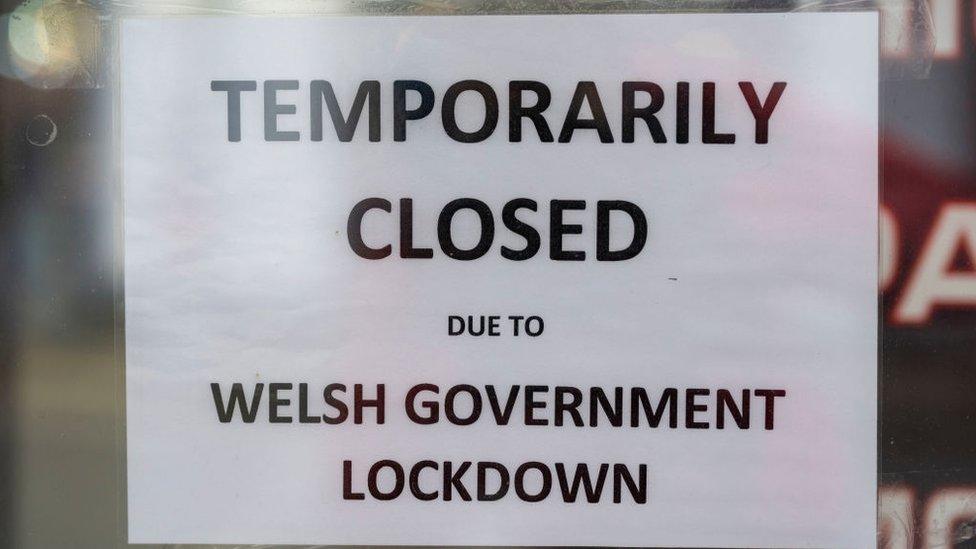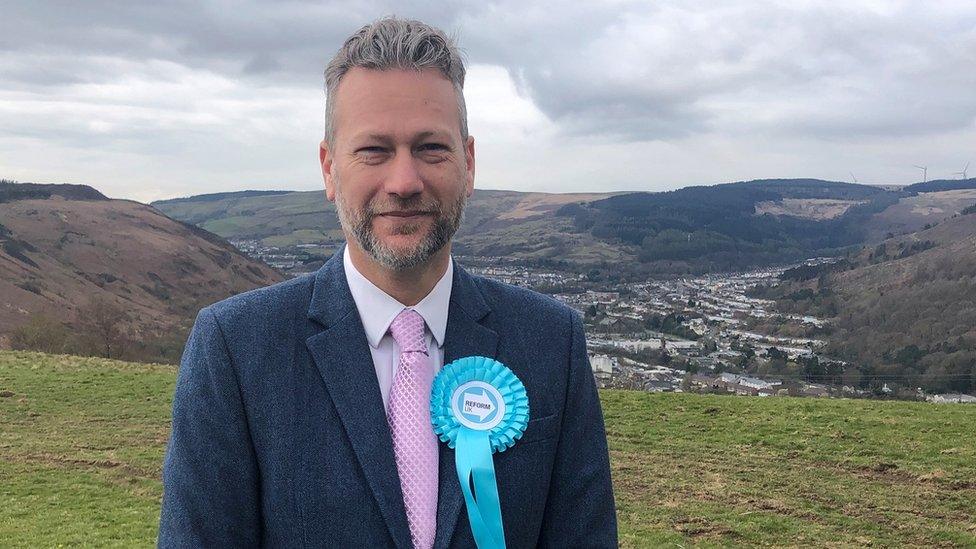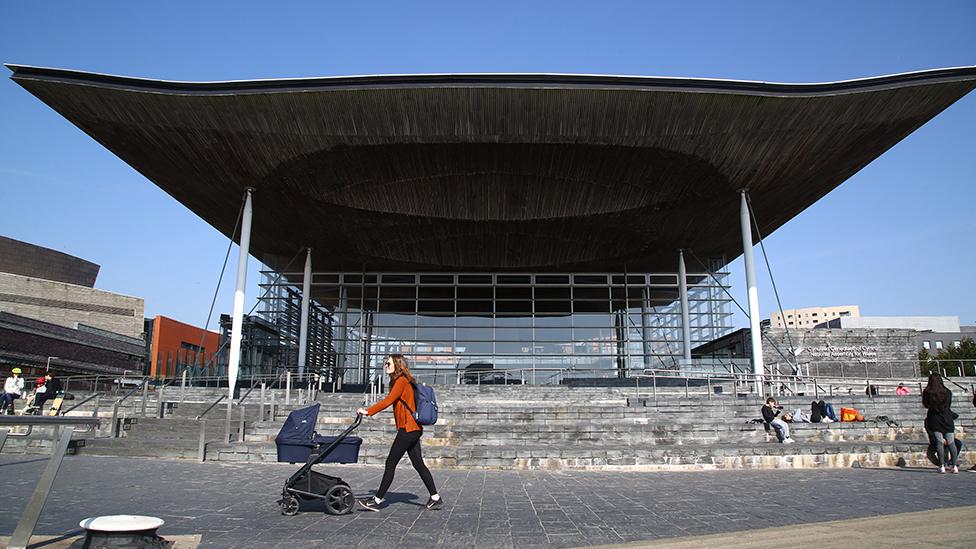Wales election: Reform UK party pledges no more lockdowns
- Published

The latest lockdown started in Wales just before Christmas
Reform UK has promised voters the party would implement no further coronavirus lockdowns.
In its "contract" with Senedd election voters the former Brexit Party said the amount of data available means lockdowns would not be needed again.
Reform also said it would clear the NHS backlog, and scrap business rates.
Welsh leader Nathan Gill said the brightest future for Wales does not lie with "badly informed politicians with their own questionable agendas".
Instead it lay with "the hearts and the minds of the people of Wales," he said.
Mr Gill led UKIP's successful campaign to win seats in the Senedd in 2016. He later left and joined the Brexit Party.

SIGN UP FOR WALES ALERTS: Get extra updates on BBC election coverage


Nathan Gill is Reform UK's leader in Wales, and is a former Senedd member
The "contract" with voters - presented by the party instead of a manifesto - said it would ensure there are "no more lockdowns such that all people within an area, no matter how big or how small, have restrictions".
It said lockdowns are the "safe option" for politicians. It said it would keep schools and gyms open.
At a launch held on Zoom the party's Jamie Jenkins denied it would ignore the advice of doctors if they called for restrictions.
"What we know is that with the data that government have collected over the last year, we know where the vulnerable people are, we know who the at risk groups are.
"So what we're saying is we have a policy where you have a targeted approach rather than just giving six hours notice to close the whole country down."
Mr Gill later told BBC Wales: "We believe that government should be data led, not led by scientists or by individuals or by fear that they may do something wrong and therefore let's just err on the side of caution."
Elsewhere the contract says the party would:
clear the NHS backlog caused by Covid by investing £1bn over four years to put waiting lists to pre-pandemic levels
give parents the right to take their children out of the classroom for a holiday for up to 10 days
build the M4 relief road
cut the number of councils and pass savings "on to the communities in Wales"
The contract said Reform would oppose any increase in the number of MSs, and change the way the first minister of Wales is elected by holding a separate election for the post.

WALES ELECTION: THE BASICS
What's happening? On 6 May, people will vote to elect 60 Members of the Senedd (MSs). The party that can command the support of a majority of MSs will form the Welsh government. Find out more here.
What powers does the Senedd have? MSs pass laws on aspects of life in Wales such as health, education and transport - and have some tax powers.

Nigel Farage left his leadership of the party earlier this year. He was replaced by Richard Tice.
Mr Gill told the manifesto launch that he believed his party's message would resonate despite the exit of the prominent Brexiteer.
He said: "Our policies and our ethos is very common sense and very much strikes at the heart of who we are as a nation and as a people and I think that that will resonate".
Mr Gill, a former MEP, eventually left his Senedd seat following rows in the UKIP group. Some of the members went on to form a Brexit Party group, which later disbanded.
Apart from Mr Gill two former UKIP Senedd politicians are standing for the party, but not in the top spots on regional lists, which are important for smaller parties.
Asked to explain the positioning of candidates, Mr Gill said: "We did it solely on the rankings of the interview process and how we felt that people would bring different skill sets to the Senedd - we needed an all-round approach and that's what we went for."

POLICY GUIDE: Who should I vote for?
FIRST TIME: Will 16-year-olds vote?

Related topics
- Published13 April 2021

- Published6 May 2021

